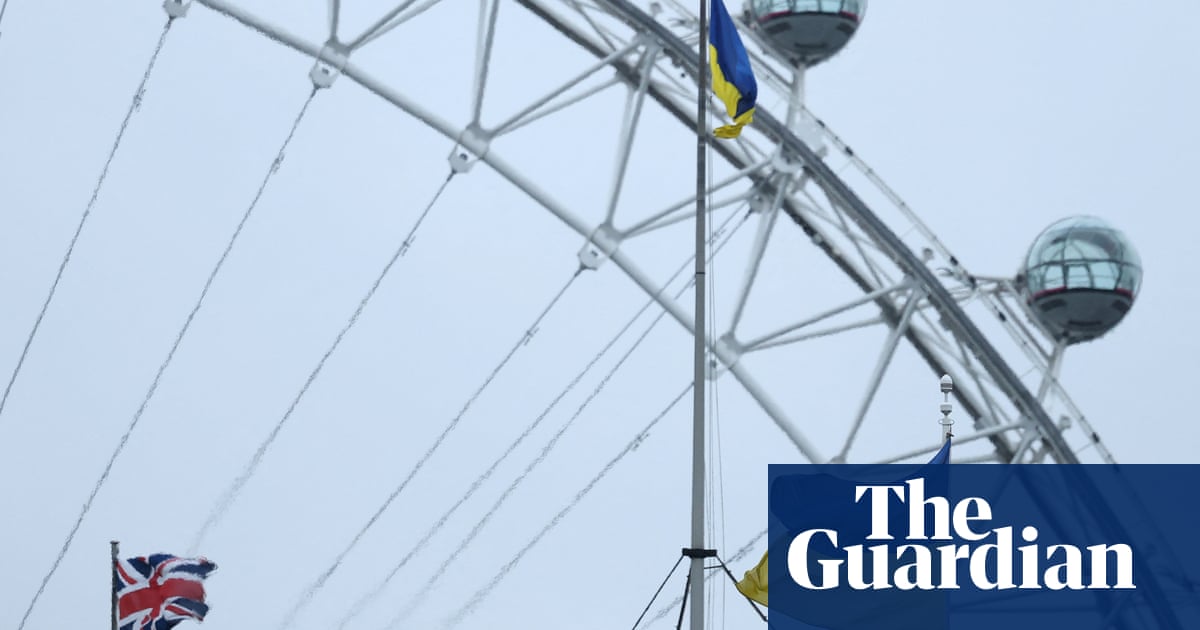Reform UK has been accused of seeking to “ban” the flying of Ukrainian flags over council buildings after the hard-right party said only the St George’s and union flags would be flown by English councils it controls.
The party’s chair, Zia Yusuf, sparked controversy on Monday with a foray into the political culture wars by announcing that the policy would be followed by the 10 local authorities inEnglandit took control of in last week’s local elections.
“Reform-controlled English councils will move at speed to resolve that the only flags permitted to be flown on or in its buildings will be the Union Jack and St George’s flag,” he said on X.
“No other flags will be permitted to be flown on its flagpoles, balconies, reception desks or council chamber walls.”
While Yusuf’s announcement was seen as targeting rainbow or pride flags, the party was later forced to respond to attacks by Labour and Conservative MPs who criticised the idea that county flags would not be allowed to fly.
A Reform spokesperson later said: “Reform UK will proudly fly the Union Jack, St George’s flag and county flags. Unlike the Tories and Labour, we are proud of our country and history.”
However, the party was also attacked for a policy that would apparently spell the end of councils flying Ukrainian flags in solidarity with the country after Russia launched its full-scale invasion. The Ukrainian flag was flying above Grimsby town hall last week where the party celebrated one of its key victories, the taking of the newly created Greater Lincolnshire mayoralty.
Mike Tapp, the Labour MP for Dover and Deal, said on Monday: “As VE Day reminds us, Britain has a proud history of working with allies to defeat dictators and tyrants.
“It tells you all you need to know about Nigel Farage’s Reform that their very first act after winning elections is to ban the Ukrainian flag from our town halls, in this of all weeks.
“Farage and Reform councillors should stop sucking up to Moscow and drop their ban on flying the Ukrainian flag immediately.”
The position of Nigel Farage and others associated with Reform towards Russia has long been one of the party’s achilles heels.
One of Labour’s regular attack lines against Farage, who wascriticised for suggesting the west “provoked” Russia’s invasion ofUkraineby expanding the EU and Nato eastwards, has been to accuse him of “fawning” over Vladimir Putin.
Reform UK took control of 10 councils in Englandat last week’s local elections, including Durham, Lancashire, Staffordshire and Kent. It is also the largest party in a number of local authorities including Leicestershire county council.
The Conservative MP for Hinckley and Bosworth, Dr Luke Evans, asked whether it meant “Leicestershire county council would not be able to fly the Leicestershire county flag”.
